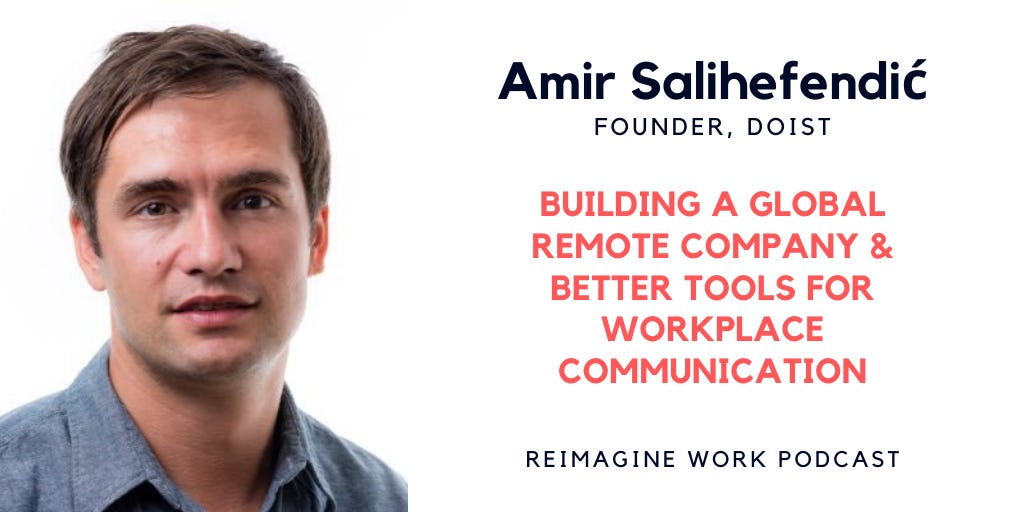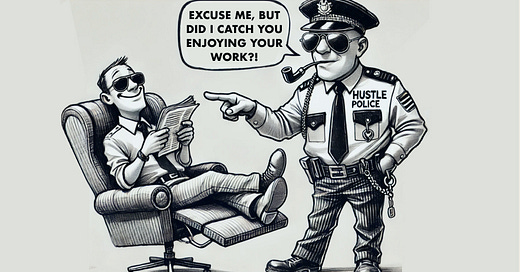December 14th, 2019: Good evening from Taiwan! Here’s a picture from a day trip today to Thousand Island Lake, a beautiful area outside of Taipei of lakes and tea plantations.

👋 Welcome aboard Shuchi, Paul, Tiffany, Marylou, Clare, Stephen, DE, Alejandro, Lu, Maria, Ben, Nash, Jan, Nick, Lione, Rafael, Aysha, Christian, Sharon
🙏 This newsletter is supported via micro-donations - if you'd like to join the 35+ others who have supported the newsletter and pod you can join them here
📩 Forward this to a friend who might get a kick out of it via e-mail or share on twitterNew Experiment in January: ❄ ✍ Winter Writing Workshop - Jim England and I are hosting a micro-experiment in January to help six people take action on publishing something written on the web. It will be a group experiment Running for 3 weeks in January. If you have any idea and you want to submit it - submit your idea or sign up here.
#1 Lessons To Unlearn
Paul Graham’s recent essay “Lesson to Unlearn” helped articulate something I’ve been thinking about for the past several years. He says:
There are certainly big chunks of the world where the way to win is to hack the test.
Graham talks about “bad tests” - ones that incentivize people to re-orient their entire attention towards doing well on the test as the primary goal.
I shared Ranjit’s essay last week and how he stumbled upon the easy-to-follow “test” of breaking into BigLaw:
The great thing about choosing a career like law is that the steps are laid out for you. Life’s existential fears are traded for certainty. Even the uncertainty of winning a training contract was off-set by how formulaic a process it was to land one: attend work experience, attend a summer scheme, talk-up made up extra-curricular activities etc.
Graham argues that many people follow these paths because they accept “this is the way things work.”
I suspect many people implicitly assume that working in a field with bad tests is the price of making lots of money. But that, I can tell you, is false. It used to be true. In the mid-twentieth century, when the economy was composed of oligopolies, the only way to the top was by playing their game. But it's not true now.
This certainly resonates with my own perspective as I graduated college and early in my career. It wasn’t until about 2014 when I started to see new possibilities emerge.
You Still Need To Know How To Hack Tests, But Its Not The Only Game
Most college students ask me one type of question:
“What can I do to get accepted by ___________?”
They want to know the answers to the test.
I’m no better than any of these people and this is why I’m interested in writing about it. For the first ten years of my career, I became highly skilled at determining the rules to “bad tests,” and molding myself to gain entry to jobs and universities.
Graham describes my former worldview well:
You might actually like to win by hacking bad tests. Presumably some people do. But I bet most people who find themselves doing this kind of work don't like it. They just take it for granted that this is how the world works, unless you want to drop out and be some kind of hippie artisan.
I kept playing the game, but increasingly grew to be frustrated with the fact that there was no end to the game. Playing the game seemed to matter more than what you actually did and especially so the higher you got within a company.
When I “dropped out” I was driven by a hunch that there might be more ways to play the “game of work” than ever before.
Turns out I was on to something..
In the first year I discovered that starting from scratch and really focusing on trying to do great work was pretty hard. I felt pretty insecure about what I was doing and found that I was pretty bad at a number of skills that I never really had to test with “skin in the game”: negotiation, end-to-end consulting projects, coaching, listening, business development, design, writing, web development and so on.
Over time, I started to gain a little confidence that there was some payoff in continuing to learn and get better at a number of these things.
I’ve become optimistic because of this and think that there are more ways than ever to make a living through work and to find ways to be rewarded for trying to do great work. This sentiment is shared by Graham:
The more I think about this question, the more optimistic I get. This seems one of those situations where we don't realize how much something was holding us back until it's eliminated. And I can foresee the whole bogus edifice crumbling. Imagine what happens as more and more people start to ask themselves if they want to win by hacking bad tests, and decide that they don't. The kinds of work where you win by hacking bad tests will be starved of talent, and the kinds where you win by doing good work will see an influx of the most ambitious people. And as hacking bad tests shrinks in importance, education will evolve to stop training us to do it. Imagine what the world could look like if that happened.
Don’t Become The Game
I always give one piece of advice to the students I talk to:
“understand the game…don’t become the game”
In my last job I worked with companies to help them assess internal candidates for CEO succession. In one company the eventual successor told us in an interview why he should be the one they pick. He laid out his twenty year career path of working in every function, business unit and region of the company. Exactly the impossible mix of experience that most companies look for when trying to promote someone to CEO.
Was he lucky or did he hack the test? Turns out this was all by design. Early in his career he told us that he “decided” he wanted to be CEO and set out to make it happen.
He became the game.
The reason I’m concerned about this is I see more and more people doing the same thing as the CEO. They come up with a certain goal, identify people who have what they want and then try to reverse engineer how those people got there.
The most striking example of this is when I hear many of my friends starting to talk about college already even though their kids haven’t even left the home. They seem to be embracing beliefs I didn’t really know existed until I entered elite circles myself:
there’s the implicit belief that a premier prekindergarten program guarantees an early leg up in a nearly 14-year battle to gain admission to the country’s most competitive colleges.
Growing up I was lucky to not really have a lot of pressure on what I was meant to do when I grew up. I didn’t even think too deeply about college until I was a junior in high school. Even then I only applied to one school.
I started teaching myself the rules of the game when I was in college trying to break into strategy consulting. Perhaps this enabled me to abandon the game in shifting to my current path. It never really felt natural and I suspect for many of you, you hate how much you have to play the game.
Unlearning this mode of being was hard, but also worth it. Even though I haven’t fully unlocked “permanently successful solopreneur mode” yet, I feel more alive with learning, curiosity and optimism than ever before and seem to be playing a game that I can live with.
#2 How do you tun a remote company with people from 56 countries, 40 vacation days a year and no slack channels?

🎧 Web | Itunes | Overcast | Google
Amir Salihefendić is the Founder and CEO of Doist, a fully distributed, remote company that creates productivity tools (Todoist & Twist). We dive into his story of moving from Bosnia to Denmark as a child and how he started Doist while in college. He’s built a growing technology company in a fully remote setting, often experimenting with different ways of working and sharing the thinking behind the decisions as he goes on the doist blog as a major supporter of the remote work movement.
👉 Worth mentioning: One thing Amir mentioned and something I’ve found with other remote companies is that they all seem to pay just as good as tech companies in San Francisco regardless of where you work. If you are stressed about your cost of living and want to be nomadic or move somewhere, you might want to check out remote companies like Doist.
You might also like my episode with Wade Foster, CEO of Zapier
#3 Life Lessons: Dealing With Grief
I wanted to share this video from a TedX event in Ubud earlier this year. It features a talk given by a friend, Jonny Miller, who shared the story of losing his partner and then his journey of dealing with that loss over the past couple of years. He's tried to approach life with “radical curiosity” since and he has a lot of wisdom to share from the journey.
Do yourself a favor and take 15 minutes to watch the video.
I’ve been lucky enough to soak up some of this wisdom in person and fully support his inevitable journey of becoming the poet of the millennial generation (my take, not his).
Jonny also has an incredible podcast called Curious Humans which is definitely worth subscribing to. His recent episode with Andrew Taggart on total work was superb.
#4 Chart Corner: Housing as indicator of….something?
I’ve been fascinated by the home as the center of the narrative of “success” that many people around the world were brought up with.
I’m not sure what to make of a varying statistics I’ve come across (US Statistics that is), but it does seem the home people want is bigger and that they are buying it later in life at higher prices.
The Median Home Has Steadily Increased in Size with more square footage per person

The House Price Index Is Higher Than It Was in the “Housing Bubble” Days

The Average Home Buyer Is Becoming Much Older


That’s all for this week. Have a good weekend!

Want to Support Boundless? All of the options here
👉 If you want to learn more about who I am or what I’m working on, find me here or check out some of my longform writing. If you aren’t subscribed to the e-mail, join us here:









